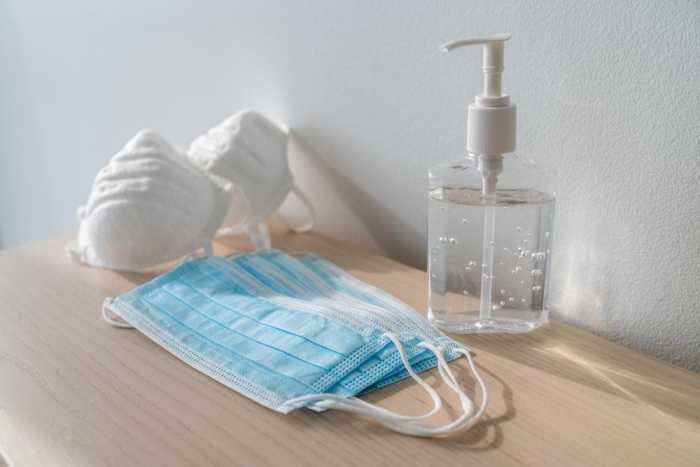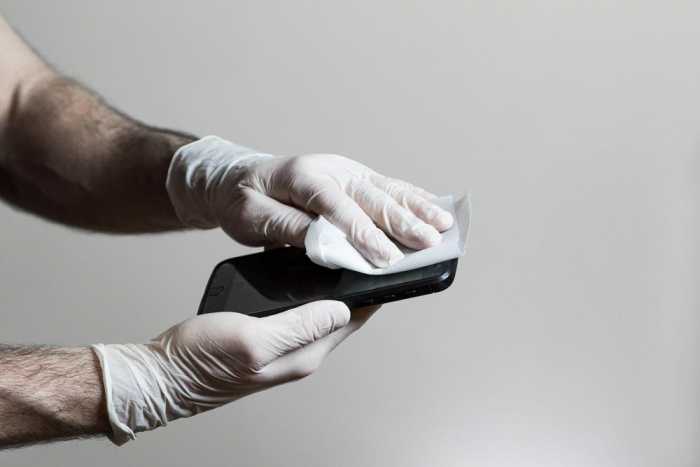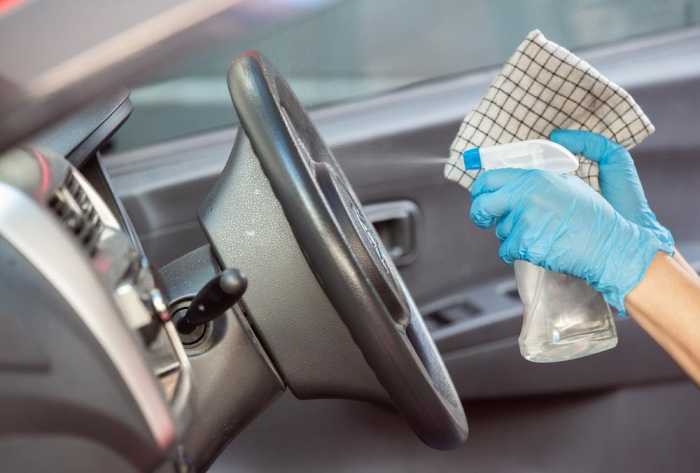When you work in healthcare, sanitation is something that’s always at the forefront of your mind. When you are exposed to all sorts of germs, viruses, bacteria and unpleasant illnesses during your shift, the last thing you want is to get sick or – worse – bring a disease home to your loved ones.

In the face of COVID-19, sanitation has become even more important than ever before. Everyone from nurses and dietary aides to physicians and surgeons must be extra careful to limit the spread of the novel coronavirus. In light of this, most workers are taking extra measures to protect themselves, their loved ones and their community. Many are even removing their scrubs outside to avoid bringing the virus into their homes.
Regardless of job title, every single healthcare worker has a vital role. If you’re a healthcare worker, you’ve undoubtedly received information and sanitation guidelines from your employer, and you’ve probably been keeping track of the latest updates and recommendations from the CDC. Still, you may be seeking additional sanitation tips for healthcare professionals – such as how to wash your scrubs or how to avoid contaminating your house after your shift. We’ve put together this list to help you stay safe, protect your family and lower the risk of community spread.
Leave Non-Essentials at Home
The less “stuff” you take back and forth to work with you, the better. While you may normally bring a tote bag loaded down with everything from extra pens and notepads to books and magazines for breaks, it’s best to only bring the essentials right now. When you head to work, only bring the things you absolutely need, such as your ID, money, and lunch. The less you bring with you, the less chance for bringing a nasty virus home with you.
Disinfect the Things You Do Take to Work

Even if you leave most of the things you normally take to work at home, there are still some necessities that you’ll need to bring with you. Because current evidence suggests that the coronavirus could remain viable for several hours (or even days) on surfaces, it’s crucial to disinfect everything you brought to work with you. Sanitize your phone, pens, credit or debit cards, etc. after your shift.
When possible, clean items using soap and water, then disinfect using an alcohol solution containing at least 70% alcohol, a diluted bleach solution or a household disinfectant product, such as Lysol. If you are using bleach, take care to never combine it with ammonia or other cleaning products.
Shower Immediately After Your Shift
Scrubbing in a hot shower removes germs, bacteria and viruses from your skin, so it’s a smart thing to do as soon as you’re done working. When you get home, immediately head for the shower. Don’t stop for hugs, a chat with your partner, etc. Save all of that for after you’ve had a chance to clean up. This is especially important if you are working in a high-risk area.
Properly Care for Your Scrubs
When you get undressed, avoid shaking your scrubs. Remove them gently, then place them in a separate hamper or laundry basket. You might want to consider placing them in a washable laundry bag. That way, you can throw the entire bag in the washing machine when you’re ready to do laundry without having to touch the individual garments. If there is a possibility that you were exposed to COVID-19 during your shift, don’t pre-treat your clothes using normal products. Instead, add ½ peroxide or Smartboost laundry additive to your washing machine. Touch them as little as possible prior to washing.
Wash your scrubs and scrub jackets using warm or hot water and your washing machine’s “Normal” or “Sanitize” cycle. Avoid using chlorine bleach. After washing, tumble dry your workwear on the “Normal” or “Hot” setting. It’s generally best to avoid using fabric softener or dryer sheets, as they can damage the fabric.
Don’t Wear Your Work Shoes in Your House
Always bring a change of shoes with you to work and change before getting in your car. Place your work shoes in a bag in the trunk of your car and leave them there until your next shift. If you have to, put them in your garage, on your porch or someplace outside. Avoid wearing or carrying your work shoes into your home. Clean them at least once each week with a strong disinfectant.
Change Clothes Before Heading Home
It’s also smart to avoid wearing potentially contaminated clothing into your home. Put on one pair of scrubs when you head to work, then change into another when you arrive. At the end of your shift, change back into the other scrubs. When you get home, immediately remove those scrubs and place both pairs in a bag or directly into the washing machine. If possible, change in your garage before entering your home.
Disinfect Your Car

If you drive yourself to and from work, don’t forget about disinfecting your car once in a while. Potentially contaminated clothes and shoes should be placed in the trunk to minimize exposure, but be sure to disinfect the entire interior of your vehicle at least once each week or so. Clean the steering wheel, pedals, seats, etc., paying close attention to the areas you touch most frequently.
The Bottom Line
As a healthcare professional, you run the risk of being exposed to all sorts of unpleasant things during every shift. While exposure to harmful bacteria and viruses is always a concern, sanitation is more important now than ever before due to the outbreak of COVID-19. Follow the tips listed above to keep yourself, your gear, your home, your friends and your loved ones safe from this devastating virus.










